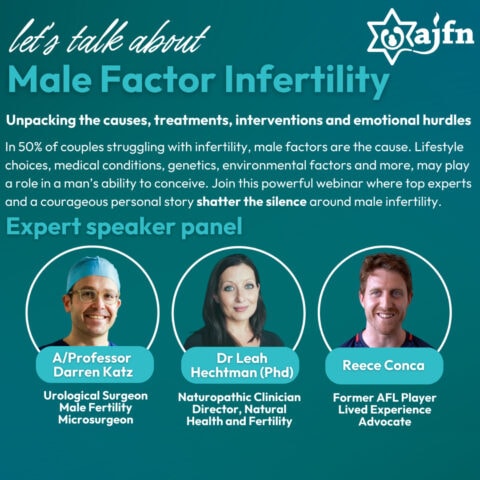Have you ever had these thoughts? You’re not alone…
“You know that the first sign of pregnancy is a missed period. Each month, you watch your body and examine your feelings, looking for signs of pregnancy. If your period is late, your spirits rise only to be dashed. You go to the loo every five minutes looking for blood. You go through these cycles of emotions month after month. You begin to ask yourself what’s wrong with you. You feel you have no control over your body or your life. Conception can become an obsession, and you start to feel isolated.”
“It dawns on you that you might have a problem. You might try to deny it. You pretend that this is not really happening to you, maybe you haven’t been trying hard enough, or maybe you’ve been trying ‘too hard’. Maybe you really don’t want that baby. Around you, everyone else seems to be pregnant and you can’t believe how easy it is for them. You begin to feel angry with your body for letting you down.”
What is Infertility?
Infertility is one of the most misunderstood parts of our life and health. There are many misconceptions about when you may be experiencing infertility, what it means for your chances to have children, how you should react and what you can do. So, what is it?
Definition
A couple is regarded as infertile when they have not conceived after 12 months of regular unprotected sexual intercourse.
About 15% of Australian couples of reproductive age have a fertility problem. Hard to believe? That’s because most people don’t talk about it.
Infertility is not just a female issue
In approximately 40% of infertile couples, the issue concerns a male factor. Regarding the other 60%, 40% concerns a female factor, while the remaining 20%, is considered either a joint problem or that the cause is unknown (which is referred to as idiopathic).
Causes of infertility are many and varied
These include: problems with the production of sperm or eggs, with the fallopian tubes or the uterus, endometriosis, frequent miscarriage, as well as hormonal and autoimmune (antibody) disorders in both men and women.
Treatments for infertility are many and varied
Treatments include surgery on the fallopian tubes to fix blockages, hormone treatments for men and women, insemination of the woman with donor sperm or sometimes with her partner’s sperm, IVF and related treatments such as ICSI. Some people try natural treatments, such as herbs, acupuncture and meditation.
Some couples will opt to create a family through adoption; while others may choose to remain without children.
“Just relaxing” or taking a holiday does not cure infertility.
For 80% of couples there is a proven medical cause. “Unexplained” infertility is just that – it means that we’re not yet able to find the cause. There is no evidence to suggest that stress causes infertility. There is plenty of evidence, however, that infertility causes stress.
How long does it “normally” take to become pregnant?
Three out of five couples conceive within six months of trying; one in four takes between six months and a year. For the rest, conception takes more than a year, which means that there may be a problem.
Common Causes of Infertility
For men:
Male fertility problems can be caused by abnormalities in sperm numbers, motility or morphology. These may be brought about by such factors such as:
- Failed vasectomy reversal
- Retrograde ejaculation
- Blocked ducts
- Absence of vas deferens
- Mumps
- Undescended testes in childhood
- Exposure to toxic chemicals
- Exposure to excessive heat
- Hormonal disorders h Autoimmune (antibody) disorders
- Sexually transmitted diseases (perhaps)
However, the causes of many sperm problems remain unknown.
For women:
Causes of female fertility problems commonly include:
- Tubal problems or Endometriosis
- Disorders of ovulation
- Premature menopause
- Polycystic ovarian disease
- Frequent miscarriage
- Hormonal problems
- Uterine fibroids and polyps
- Autoimmune (antibody) disorders
Up to 20% of couples will have no explainable cause for their infertility.
How do you know if you’re experiencing infertility?
If you and your partner have not become pregnant after a year of trying, you may have a fertility problem, and it is worth seeking medical help. If the woman is over 35, it may be a good idea to start checking things out even earlier, after six to nine months. Infertility investigations can sometimes take a long time, even years. If you put off seeking help now, you could be leaving it too late.
What can you do about it?
Step 1: Make an appointment with your GP, who can refer you to a gynaecologist who specialises in infertility. Make sure that you see an infertility specialist with CREI qualifications – he or she will be more up-to-date with the latest investigations and treatments than other gynaecologists. If you don’t want to see a private doctor, Fertility Clinics exist in a number of large hospitals, and you can call one of these to make an appointment directly.
Step 2: You will need to see the specialist together. Both of you can expect to be asked a lot of personal questions: your general health and history of illnesses; frequency of intercourse, sexual history, type of work. The woman may have an internal examination. This session should take about an hour.
Step 3: The doctor may suggest that the woman does some temperature charts; which can help to determine the time of ovulation (and the fertility window). Consequently, it is likely he/she may suggest, you then have intercourse to coincide with it.
Your doctor will also suggest a number of tests – the easiest ones first; blood tests to check the woman’s hormone levels, a semen analysis, and a post-coital test. In this, the woman’s cervical mucus is examined under a microscope several hours after intercourse, to see if the sperm are still surviving and healthy.
The semen analysis is sometimes (incorrectly) called a sperm count. It looks at the number of sperm, their motility (ability to swim) and their morphology (shape). It is quite normal to have a proportion of sperm which are abnormal. However, if the test suggests a problem, then the man may be referred to an andrologist (a doctor who specialises in men’s reproductive systems).
If all of these tests show no abnormalities, you may be advised to have some more involved investigations. These commonly include a hystersalpinogram (an x-ray of the uterus and fallopian tubes) and a laparoscopy. Under a general anaesthetic, a small telescope-like instrument is inserted through a cut in the navel or abdomen, to examine the areas around the woman’s uterus and fallopian tubes.
Other aspects to consider
Take a list of questions in with you. Write down the answers (sometimes your anxiety can cause you to forget what you wanted to ask, or what the answer were).
Ask for copies of all your test results, and keep them in a folder at home, as there may come a time when you want to change doctors or seek a second opinion.
Ask whether your semen analysis is being done by a specialised infertility laboratory – they often have different standards to the regular pathology laboratories.
- Ask your doctor to explain what the tests and the results mean.
- Ask your specialist to keep your GP filled in on what is happening.
How should I manage my feelings?
Couples with fertility problems have different responses to their situations, and different ways of dealing with them. Here are some common responses:
Feeling extraordinary isolation, being surrounded by friends and family who all seem to have children or are becoming pregnant.
My life is “out of control”, since the part which they took so much for granted – their ability to have a baby – is now in the hands of doctors and scientists.
A sense of pressure from well-meaning friends or family who constantly ask when they are going to start a family. Many choose to keep their fertility problems a secret.
Extreme sadness. Infertility is a situation of loss which can go on for years, and it can be difficult to deal with constant sadness in their lives. Often the male partner deals with this sadness in a different way to the female partner, and this can be difficult to understand. Men commonly don’t talk as much as women do, and don’t always express their feelings as openly as women.
A sense of ‘madness’. The feelings of both partners, however, can be very intense, and people sometimes say that they think they must be “going mad” until they talk to other infertile people who describe similar feelings, and realise that they are, in fact, very normal.
Joining a support group can help to ease these feelings of isolation and “madness”. You will also have access to information resources. Many people say that reading and educating themselves about their infertility helps them to feel more “in control”. It certainly helps to make better informed decisions.
All fertility units have counsellors who are used to helping couples with fertility problems. There are also some infertility counsellors in private practices.
For more information visit access.org.au
Source: Access Australia (Fact Sheet 14, Sept 2010)





